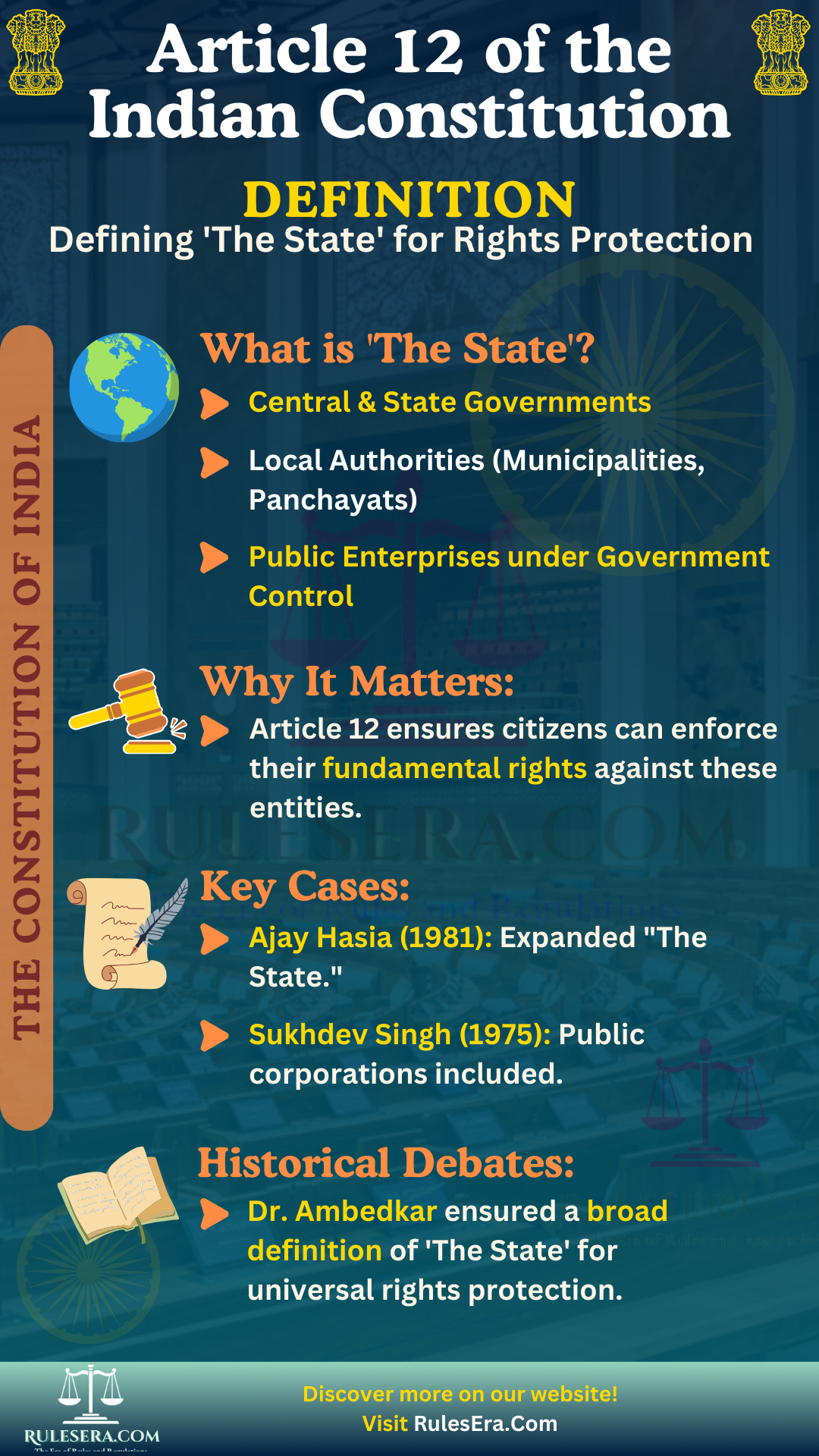Article 12: Definition

In this Part, unless the context otherwise requires, “the State” includes the Government and Parliament of India and the Government and the Legislature of each of the States and all local or other authorities within the territory of India or under the control of the Government of India.
Explanation
Article 12 defines "the State" for purposes of Part III, which deals with Fundamental Rights. It includes the national government, state governments, and all local authorities, ensuring that these entities uphold citizens' rights as guaranteed by the Constitution.
Components of "The State"
- Government and Parliament of India: Central institutions responsible for national governance.
- Government and Legislature of each State: State institutions, ensuring that both Union and State Governments protect Fundamental Rights.
- Local Authorities: Municipal bodies, panchayats, etc., operating within India’s territory, are bound by the Constitution.
- Other Authorities under the Government's Control: Entities performing public functions under government control, such as statutory corporations.
Judicial Interpretations and Amendments
Although Article 12 has not been directly amended, judicial interpretations, such as Ajay Hasia v. Khalid Mujib Sehravardi (1981), have expanded its scope. Any institution substantially controlled by the government may be considered part of "the State" if it performs public functions.
Real-World Applications
In Sukhdev Singh v. Bhagatram Sardar Singh Raghuvanshi (1975), corporations like ONGC were considered part of "the State." This allowed citizens to seek constitutional remedies for their rights against such entities. Similarly, in Maneka Gandhi v. Union of India (1978), entities regulating passports were deemed bound by fundamental rights protections.
Frequently Asked Questions (FAQs):
Article 12 defines "the State" for the purpose of Part III, which deals with Fundamental Rights, ensuring that these rights can be enforced against the government and its authorities.
Yes, Article 12 includes all local authorities within India, like municipalities and panchayats, as part of "the State," making them responsible for upholding Fundamental Rights.
The Supreme Court has broadened Article 12's scope through cases, determining that entities performing public functions or under significant government control also fall under "the State."